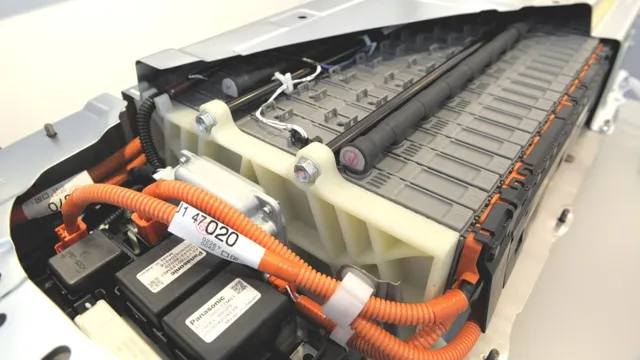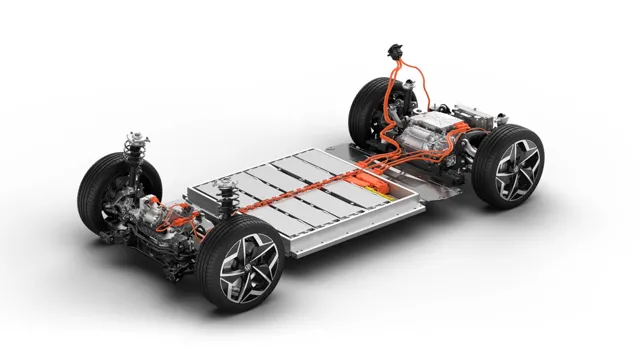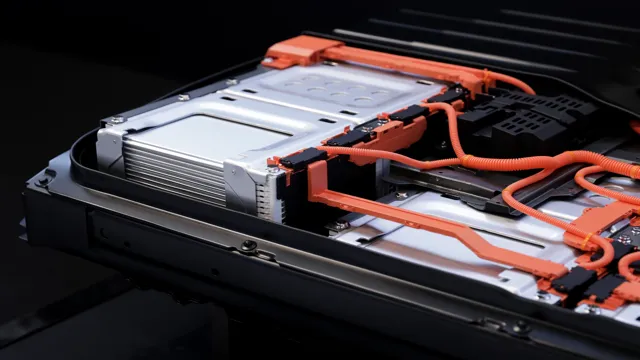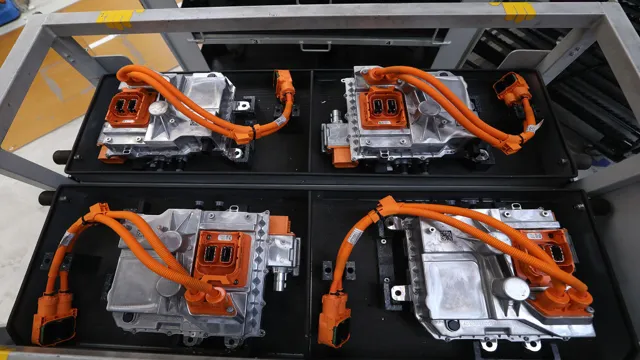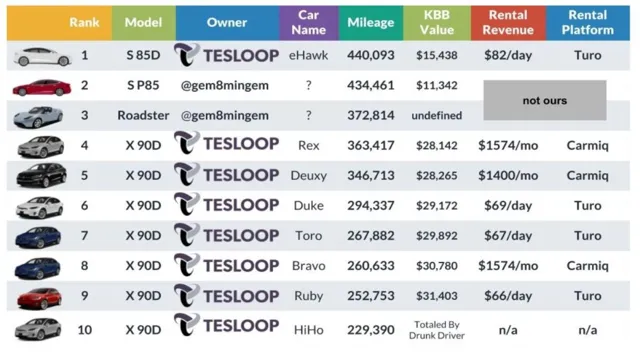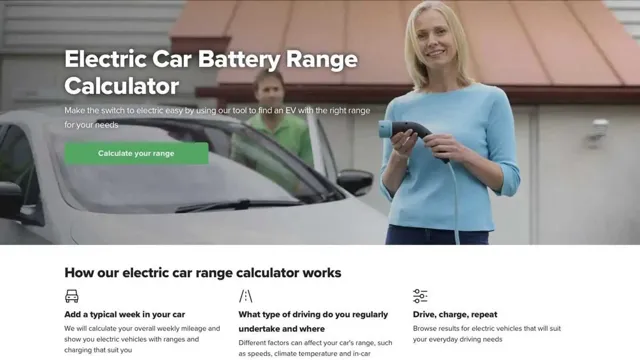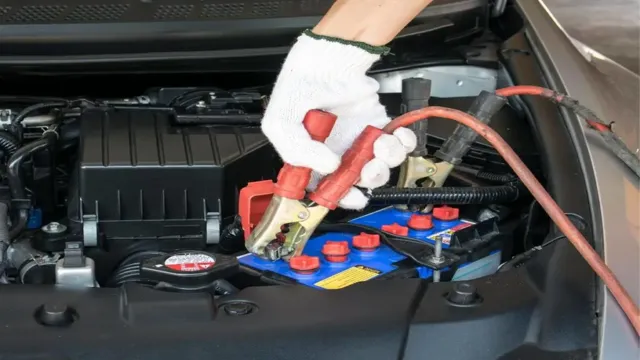Why You Should Consider Replacing Your Electric Car Battery: The Benefits, Costs, and Process Explained
Electric vehicles are innovative and eco-friendly, but there is one concern that still worries potential buyers – battery replacement. How often will you need to replace the battery, and just how expensive will it be? Fortunately, there are a few things you should know so you can relax and enjoy the ride. In this blog post, we’ll delve into the process of electric vehicle battery replacement and answer some common questions.
So, let’s start by exploring the lifespan of an EV battery.
Cost of Replacing an Electric Car Battery
As electric cars become more popular, the issue of battery replacement has come to the forefront for many drivers. The cost of a new battery varies depending on the make and model of the car, as well as the size and capacity of the battery. On average, an electric car battery replacement can cost anywhere from $3,000 to $7,000, with some higher-end models costing even more.
This may seem like a lot of money, but it’s important to keep in mind that electric cars are an investment. The cost of fuel and maintenance is significantly lower than traditional gasoline-powered cars, and the savings can add up over time. Plus, many drivers find that the performance and convenience of electric cars are worth the initial cost.
In the end, it’s up to each individual driver to decide if the cost of a new battery is worth it for their specific needs and lifestyle.
Factors Affecting Battery Replacement Costs
When it comes to electric car maintenance, the cost of replacing the battery is a topic of major concern, and it is influenced by several factors. The primary factor that affects the cost of battery replacement is the type of battery installed in your electric vehicle. Lithium-ion battery packs generally have the highest cost compared to other types due to their advanced technology and high-performance capabilities.
Another crucial factor is the age of your car. The older the car, the more likely the battery needs replacing, and the cost can increase due to the need for specialized parts and labour. Furthermore, driving habits, such as heavy usage or extreme temperature exposure, can impact the lifespan of the battery.
Drivers who use their electric cars for long distances or harsh climates may experience higher battery replacement costs due to excess strain on the battery. Finally, the brand of the electric vehicle can also impact the cost of battery replacement. Luxury electric car brands tend to have higher battery replacement costs due to the quality and expensive components used in their batteries.
Overall, electric car owners should consider all the factors mentioned above before finalizing their decision regarding battery replacement, as it can significantly impact their overall vehicle maintenance costs.

Comparison of Battery Replacement Costs Across Major Electric Car Brands
Electric Car Battery Replacement Cost Comparison When it comes to the cost of replacing an electric car battery, it’s essential to consider the brand and the model of the car. It’s no secret that electric cars are gradually taking over the automotive market, but many people worry about the cost of battery replacement. However, the good news is that the cost of replacing an electric car battery is gradually decreasing as technology evolves.
Currently, the cost of replacement varies significantly based on the brand, with some brands being more expensive than others. For instance, in general, Tesla is the most expensive brand to replace a battery, while Nissan and Mitsubishi are on the lower end of the spectrum. As we move further into the future, it’s expected that the cost of replacing batteries in electric cars will become more affordable due to advances in technology and competition between brands.
Battery Lifespan and Maintenance
When it comes to electric cars, one of the main concerns drivers have is the lifespan of the battery. While it’s true that electric car batteries will eventually need to be replaced after several years, there are several factors that can help extend their lifespan and minimize the need for costly replacements. One of the most important things you can do is to maintain the battery properly.
This means keeping it at a moderate temperature, avoiding letting it discharge completely, and ensuring that it’s charged regularly. Additionally, some electric car manufacturers offer replacement warranties that can provide peace of mind and save you money down the line. All in all, while the thought of having to replace an electric car battery can be daunting, with proper maintenance and care, it should not be a significant concern for drivers.
How Long Do Electric Car Batteries Last?
Electric car batteries have been a point of concern for potential buyers, as they are skeptical of their lifespan and durability. However, they are generally designed to last for a considerable period of time, with some estimates stating roughly 8 to 10 years, sometimes even more. This lifespan is dependent on various factors such as the temperature the battery operates at, charging habits, and overall maintenance.
Proper care, such as regular software updates and being mindful of battery temperature can make a significant difference in the longevity of an electric vehicle battery. Just like gasoline-powered engines require regular maintenance, electric vehicle batteries require a degree of carefulness to maintain their quality and lifespan. Investing in a high-quality and well-maintained battery is crucial to getting the most value for your money.
Therefore, battery life should not be a concern for anyone thinking of purchasing an electric car, provided they commit to regular upkeep and do not subject the battery to extreme conditions.
Tips for Prolonging Battery Life
battery lifespan Battery lifespan is an important consideration when it comes to maximizing the usage and value of your devices. There are many factors that can affect the longevity of your battery, but proper maintenance can significantly improve its lifespan. One tip is to avoid extreme temperatures as they can greatly impact the performance and lifespan of your battery.
Additionally, it’s best to charge your battery before it fully drains and avoid overcharging to prevent damage. It’s also important to keep your battery and device clean and free of dust and debris, as these can restrict ventilation and cause your battery to overheat. These simple measures can help extend the lifespan of your battery and ensure that your devices remain in good working condition for longer.
Regular Maintenance to Optimize Battery Performance
Regular Maintenance to Optimize Battery Performance Proper maintenance of your battery is crucial for extending its lifespan. It’s not just about charging your battery; there are simple steps you can take to help your battery reach its full potential. For instance, avoid exposing your battery to extreme temperatures, whether hot or cold.
Heat can cause your battery to deteriorate faster, while cold temperatures can drain its energy. Additionally, always use the appropriate charging cord for your device to prevent overcharging and damaging the battery. Moreover, it’s essential to limit your device’s exposure to direct sunlight, as it can cause overheating and battery damage.
Lastly, always allow your battery to drain completely before recharging and avoid charging it overnight or for an extended period. With these simple maintenance practices, your battery will perform optimally, prolong its lifespan, and help you enjoy your device experience.
When to Replace an Electric Car Battery
Electric cars are becoming increasingly popular as people seek alternative means of transportation due to the environmental benefits and cost savings. However, one question that many drivers have is when to replace the battery in their electric car. While electric car batteries are designed to last a long time, all batteries eventually wear out and lose their capacity.
Most EV manufacturers provide a warranty on the battery for a certain number of years or miles, but beyond that point, it’s up to the owner to decide whether to replace the battery or continue driving with reduced range. Many drivers opt to replace the battery when it reaches 70-80% of its original capacity to ensure they still get enough range for their needs. It’s also important to factor in the cost of a new battery and consider whether it makes financial sense to replace it versus buying a new vehicle.
Overall, it’s best to stay aware of your battery’s capacity and plan accordingly for when it might need to be replaced.
Signs That Your Electric Car Battery Needs Replacement
As with any vehicle, electric cars will eventually require a new battery. The main sign that your electric car battery needs replacement is decreased range per charge. If you used to be able to drive 100 miles on a full charge and now you’re only able to go 50 miles, it’s time to consider a new battery.
Other signs include the battery not holding a charge as long as it used to, decreased power and acceleration, or issues with the battery management system. If you’re experiencing any of these problems, it’s crucial to take your electric car to a qualified technician who can diagnose the problem and suggest any necessary battery replacement. While a new electric car battery can be a significant expense, it’s essential to keep your vehicle in top condition for optimal performance and longevity.
How to Check Your Battery Health
Electric car owners need to keep a check on their battery health to ensure the longevity of their vehicle. It’s always better to be proactive than reactive when it comes to electric car batteries. The easiest way to check is through the car’s onboard computer system.
Most cars come with a Battery Management System that keeps track of battery health. The system provides a rough estimate of how long the battery will last before it needs replacing. Another way is through the use of a battery tester or a multimeter.
These tools give a more accurate reading of the battery’s voltage and its health, indicating whether or not it needs a replacement. It’s crucial to replace a battery once it starts losing its charging capacity. Continuing to use a weak battery puts strain on other components of the car and could result in more significant and costly repairs in the future.
Overall, keeping a check on an electric car battery’s health and replacing it as needed is necessary for the overall functioning and longevity of the vehicle.
Conclusion
In conclusion, the idea that electric cars will replace batteries is about as logical as thinking that solar panels will replace the sun. Batteries are to electric cars as fuel is to gas cars – an integral part of the technology. However, there is no doubt that advancements in battery technology will continue to improve the efficiency and range of electric cars, making them even more appealing to eco-conscious drivers.
So, while we may not see an end to batteries in electric cars anytime soon, we can certainly look forward to a future where electric cars are even more practical, affordable, and environmentally-friendly.”
FAQs
Can an electric car’s battery be replaced?
Yes, an electric car’s battery can be replaced. However, it can be a costly process and the price of the replacement can vary depending on the make and model of the vehicle.
How often do electric car batteries need to be replaced?
The lifespan of an electric car’s battery can vary but on average, most batteries last between 8-10 years. However, this can depend on the usage and maintenance of the vehicle.
Can you replace an electric car battery with a larger one?
It is possible to upgrade an electric car’s battery to a larger one, however, this can also be a costly process and may void the vehicle’s warranty.
Are there any benefits to replacing an electric car’s battery?
Yes, replacing an electric car’s battery can improve the vehicle’s range and performance. It can also extend the overall lifespan of the vehicle.
